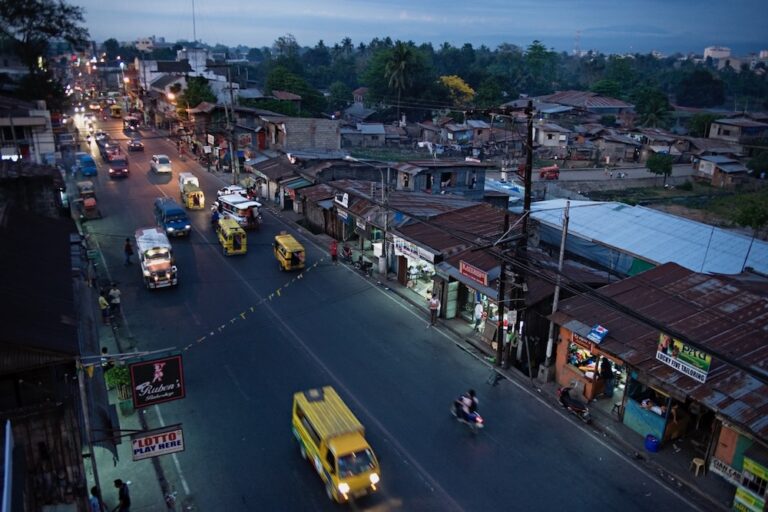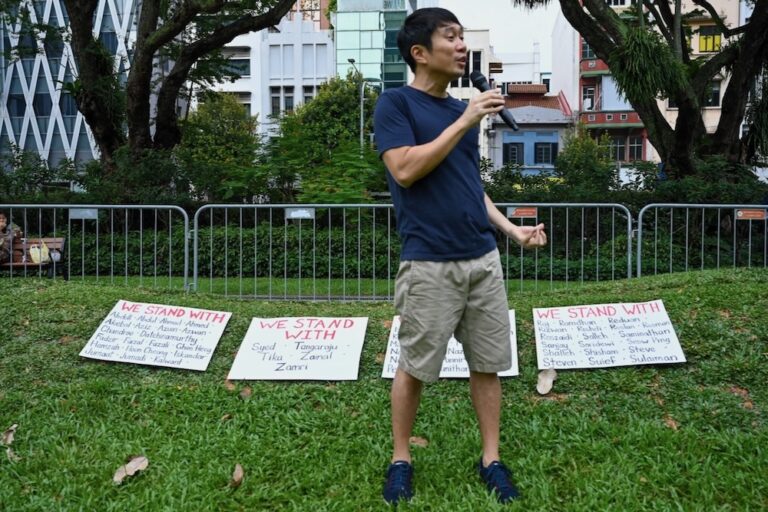Freedom of expression continues to come under attack in the region where even the more established democracies are witnessing steadily increasing threats, says SEAPA.
(SEAPA/IFEX) – 4 February 2011 – Freedom of expression continues to come under attack in the region where even the more established democracies are witnessing steadily increasing threats, in the form of violence against the media and efforts by various segments of society to censor and control the free flow of information. This report presents the cases and trends for 2010 and identifies the expectations for the year 2011.
A year before, SEAPA highlighted the Ampatuan massacre in the Philippines when 32 media workers were killed while on duty. In 2010, Thailand became the focus of attention when the media was caught in the cross fire in the political crisis, which culminated in the deaths of 91 people, including two journalists following the military operations on the rallies organized by the Red Shirts (mainly supporters of ousted Prime Minister Thaksin Shinawatra) between March and May. The rally will be remembered among media freedom advocates by the deaths of two journalists, Reuters cameraman Hiro Muramoto and Italian photographer Fabio Polenghi, and many other local and foreign journalists who were wounded in the cross fire.
While Thailand and the Philippines, together with Indonesia, are the region’s strongest democracies, advocates have expressed concern over the trends of impunity, physical threats and legislative controls that could derail years of work to build a free and safe environment for the media to operate. While the emergency decree has been lifted in Thailand, there is still anxiety over the post-conflict period and if the media will be able to operate without fear and favour. In the Philippines, there is still uncertainty over the ability of the new administration under President Benigno Aquino III to deliver on promises to end impunity. Following the August 2010 hostage crisis in Manila in which nine people died, politicians are considering regulations to restrict the role and movement of the media in similar situations. As many as 47 cases of violence against journalists were recorded in Indonesia, including one journalist killing in Southeast Maluku.
While impunity will remain high on the agenda for press freedom monitors and advocates, there is also concern that new legislative instruments are being introduced to stifle the media across the region. Indonesia could see the introduction of a new secrecy law that is being sponsored by the Defence Ministry. In the Philippines, legislators have said that their support for the passage of a freedom of information law is conditional upon civil society support for a Right to Reply bill that journalists’ groups have opposed. In Cambodia, the government amended the Penal Code at the end of the year to introduce provisions on defamation, libel, slander and contempt. In addition, a new law to regulate non-governmental organizations is on the table and has raised concerns about the extent to which it will provide the regime an excuse to clamp down on critical groups. In Malaysia the government has set up a “special unit” to monitor the Internet with no less than three Cabinet ministers in the committee. There are plans to draw up new guidelines to govern sedition in cyberspace, with no public consultations to date on what this law would entail.
During the year, Burma was once again in the spotlight for its national elections and the historic release of opposition leader Aung San Suu Kyi. Tighter regulations were introduced over the year concerning the registration and activities of political parties as well as what the media could report in the build up to the elections on 9 November. The foreign media was mainly kept out and in the coverage of Suu Kyi’s release on 13 November, several journals were suspended for giving her too much news space.
As in the last few years, online space has also come under serious attack, as it continues to be positioned as a valuable platform especially where the mainstream media is under strict control or alternatives are few. The year saw a number of bloggers and Internet activists in Vietnam arrested and harassed by the authorities. Some of the bloggers had been writing about sovereignty issues, namely the controversial government award of the bauxite mining concession to a Chinese company. In Thailand, the emergency decree meant that a newly established Center for the Resolution of the Emergency Situation (CRES) was censoring cyberspace, and at the same time, the civilian government through various ministries was continuing its own blocking of websites. At the lifting of the emergency, up to 400,000 websites had been blocked and none have been subject to judicial scrutiny at this point.
The outlook for the year 2011 is generally not encouraging as there is little sign of political will to address impunity by the governments in the region or to endorse and push for media reforms. In contrast, there are moves to strengthen some of the controls over the media and flow of information, and this will be particularly problematic as national elections are expected in Thailand and Singapore, and possibly in Malaysia, and a regional one in the Autonomous Region of Muslim Mindanao. It is difficult to speculate how the government chooses to deal with opposition leader Aung San Suu Kyi in Burma in the post-election period and if the media will once again be caught in the political crisis in Thailand as the country anticipates elections this year. There is guarded optimism that at the regional level, the human rights agenda will take on a more important focus as Indonesia assumes the Association of Southeast Asian Nations (ASEAN) chair for the next year, but this will depend largely on the commitment at the national levels for reforms.


